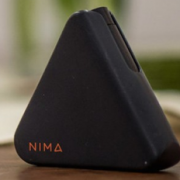Accommodating Food Allergies in the Workplace
 As a food allergy survivor with three near-death experiences to peanuts, two of which occurred during the scope of his employment, Keven Moore offers tips on accommodating food allergies in the workplace.*
As a food allergy survivor with three near-death experiences to peanuts, two of which occurred during the scope of his employment, Keven Moore offers tips on accommodating food allergies in the workplace.*
 “Today approximately 15 million Americans have food allergies, and that number continues to increase yearly. There is is no clear answer as to why, but according to a study released in 2013 by the Centers for Disease Control and Prevention, food allergies among children increased approximately 50% between 1997 and 2011.
“Today approximately 15 million Americans have food allergies, and that number continues to increase yearly. There is is no clear answer as to why, but according to a study released in 2013 by the Centers for Disease Control and Prevention, food allergies among children increased approximately 50% between 1997 and 2011.
As these children mature into the workforce, the number of working employees suffering from allergies will proliferate, and the severity of allergies will significantly increase.
As awareness of food allergies has improved, so does the demand for employers to accommodate employees with these allergies.
The truth of the matter is that most employers do not currently have policies or procedures in place for managing employees with food allergies; and that needs to change.”
- What accommodation would be considered reasonable for an employee with a food allergy?
- Is the accommodation even required for the performance of essential job functions?
- How will the accommodations affect other employees?
What can employees do?
 “I have never made any special requests or demands and have always placed my own health concerns in my own hands instead of relying on my employer. But I have informed my employer of my severity to a food allergy and what symptoms to look out for and where I keep my epinephrine shot.”
“I have never made any special requests or demands and have always placed my own health concerns in my own hands instead of relying on my employer. But I have informed my employer of my severity to a food allergy and what symptoms to look out for and where I keep my epinephrine shot.”
Many employees with food allergies prefer to prepare and bring their own lunches to work. It is important to ensure your food is not contaminated or tampered with.
Speak to you supervisor about the current norms set up for the kitchen space and you may want to ask for a designated space in a shared cupboard.
Further protect yourself by placing your lunch in a sealed container, and label your food with your name and a “please do not touch” message. You may want to ask for permission to use a personal refrigerator or food storage in your private workspace.”
What could employers do?
 Training supervisors and managers how to respond to accommodation requests as well as the legal ramifications of failing to do so.
Training supervisors and managers how to respond to accommodation requests as well as the legal ramifications of failing to do so.
Conduct a training session to educate employees on food allergies and place signage in the kitchen with information about anaphylaxis and how to spot the signs of an allergic reaction.
Provide designated cups, plates, and utensils for those with food allergies, or a separate space to store those items that employees with food allergies purchase themselves.
 Make accommodations during meetings and training events where foods or snacks may be served. The trainer or facilitator may ask people to refrain from eating in the room during the training/meeting if necessary.
Make accommodations during meetings and training events where foods or snacks may be served. The trainer or facilitator may ask people to refrain from eating in the room during the training/meeting if necessary.
Having lunch with clients, coworkers, or your supervisor is a common way to build rapport with colleagues and conduct business. Employers should prepare a list of restaurants that the affected employee (s) have eaten at before and are comfortable ordering from. Employers can also call ahead to the restaurant to request special accommodations and to highlight entrees on the menu with the food allegories in question.
 Workplace potlucks, birthday parties, baby showers and celebrations occur with some frequency for most employers. Employers should remind everybody about identifying the ingredients and discuss cross contamination potential by using the same serving utensils.
Workplace potlucks, birthday parties, baby showers and celebrations occur with some frequency for most employers. Employers should remind everybody about identifying the ingredients and discuss cross contamination potential by using the same serving utensils.
Take action if other employees interfere with the provision of the reasonable accommodations (i.e., stealing/tampering with food, or eating food that contains an employee’s allergen in a meeting).
Allow for flex time and be understanding if the employee needs to take sick days or unexpected leave for medical appointments.
 Allow an employee to keep medication with him/her at all times and note that an employee with a food allergy may wear medical identification, such as a necklace or bracelet.
Allow an employee to keep medication with him/her at all times and note that an employee with a food allergy may wear medical identification, such as a necklace or bracelet.
 Keven Moore works in risk management services. He has a bachelor’s degree from University of Kentucky, a master’s from Eastern Kentucky University and 25-plus years of experience in the safety and insurance profession. He lives in Lexington with his family and works out of both the Lexington and Northern Kentucky offices. Keven can be reached at [email protected].
Keven Moore works in risk management services. He has a bachelor’s degree from University of Kentucky, a master’s from Eastern Kentucky University and 25-plus years of experience in the safety and insurance profession. He lives in Lexington with his family and works out of both the Lexington and Northern Kentucky offices. Keven can be reached at [email protected].












